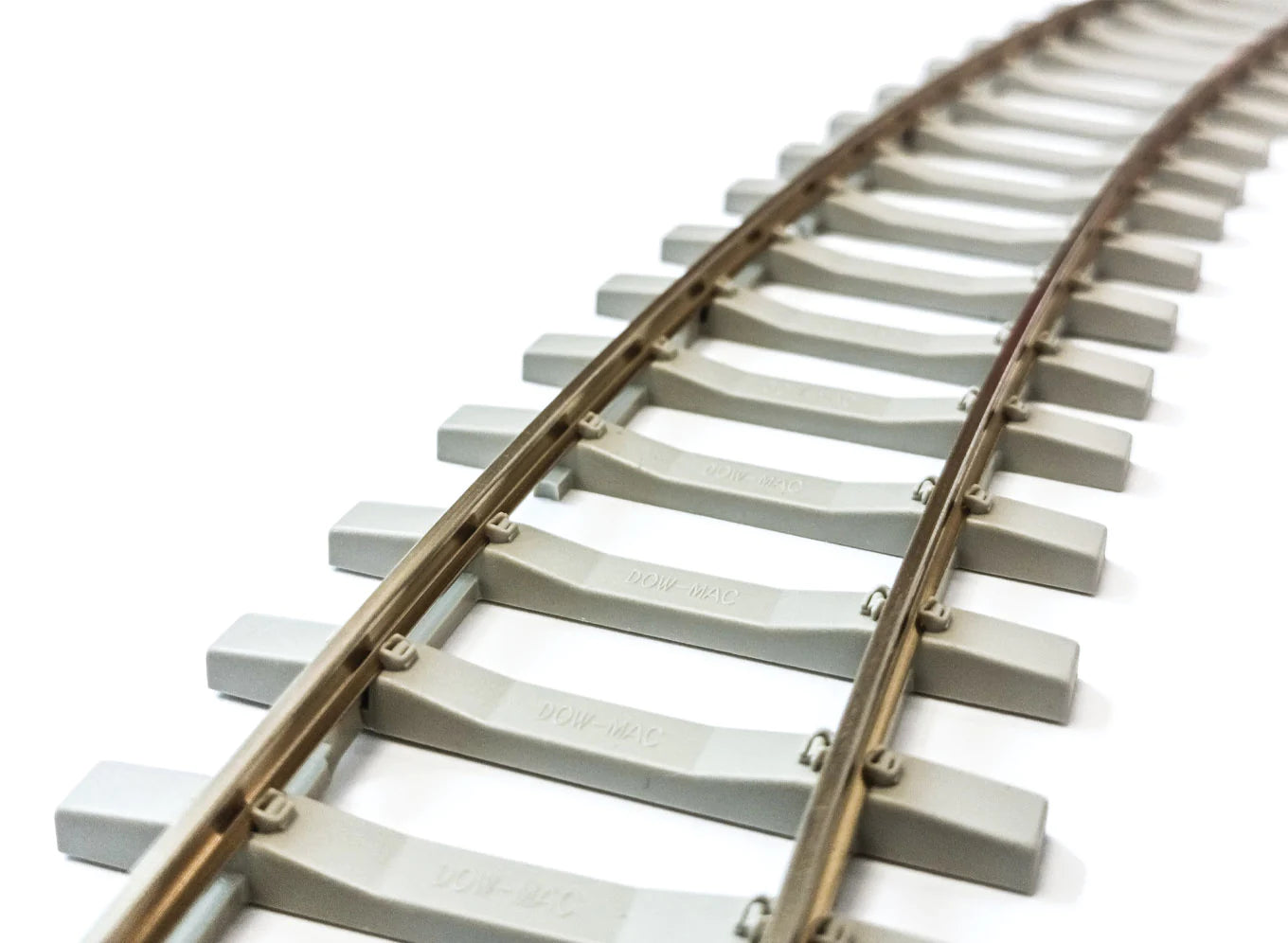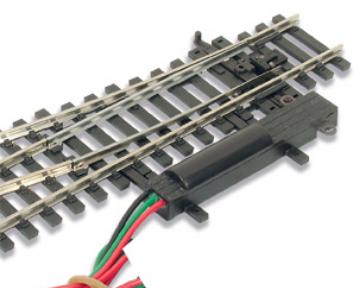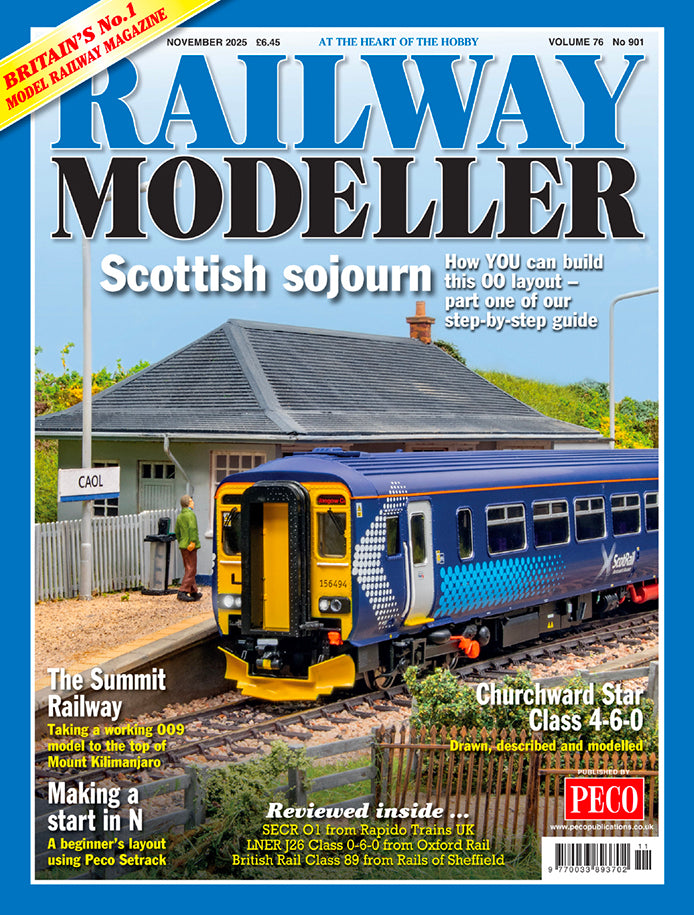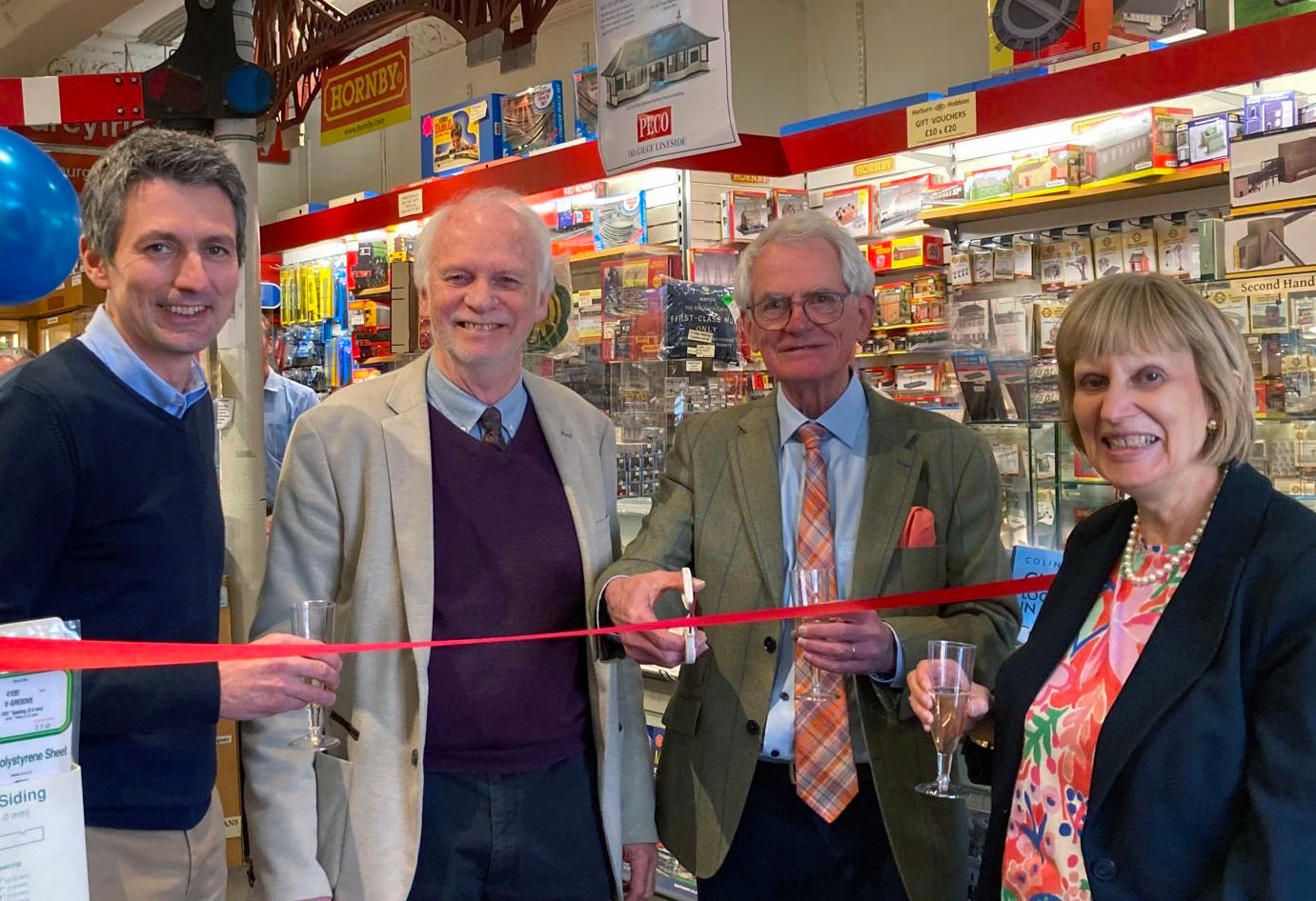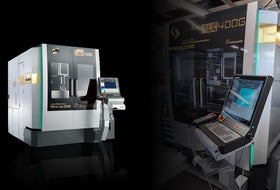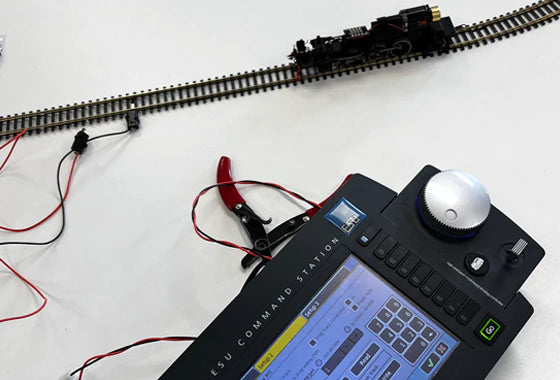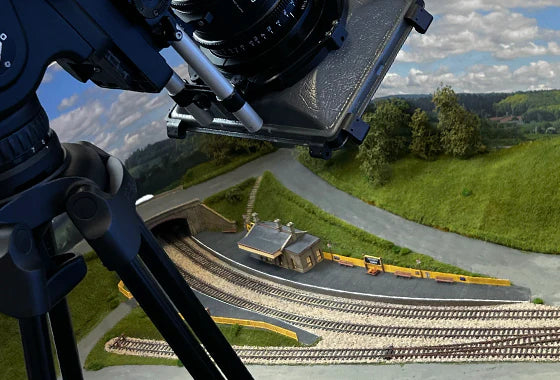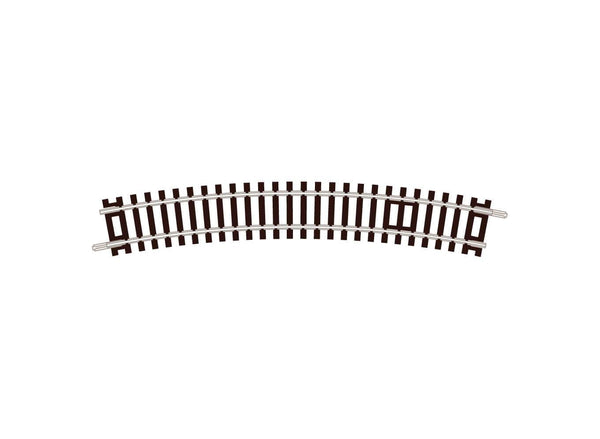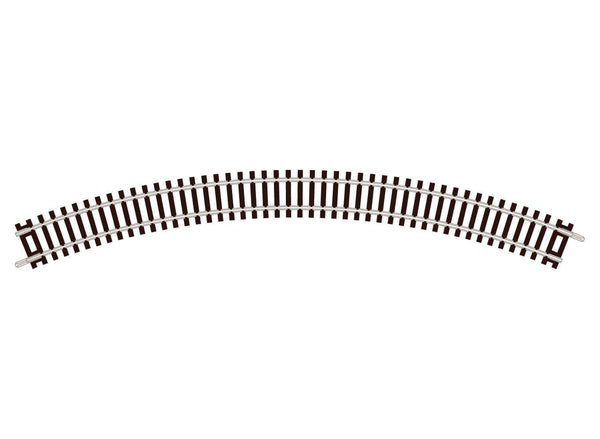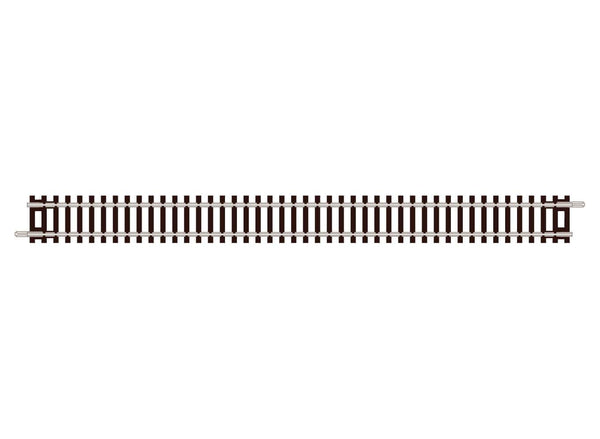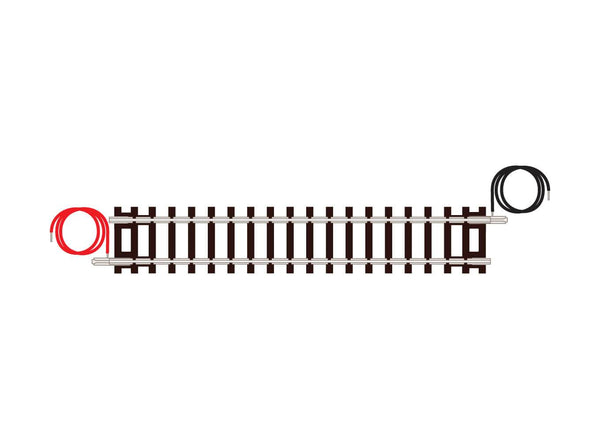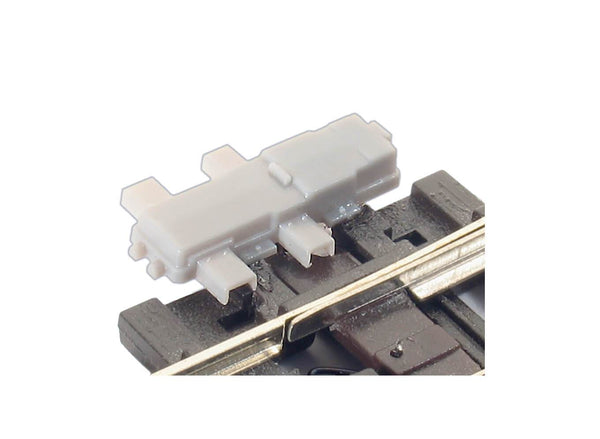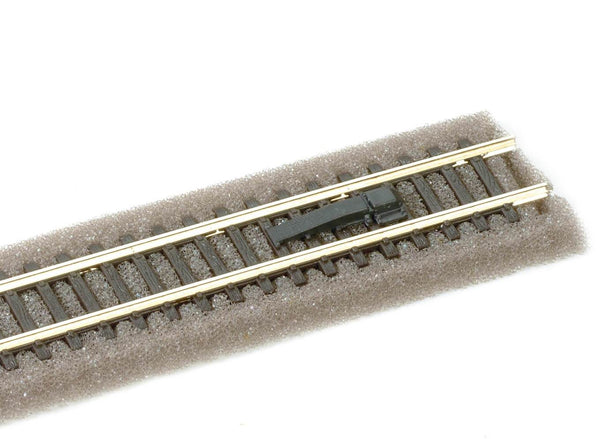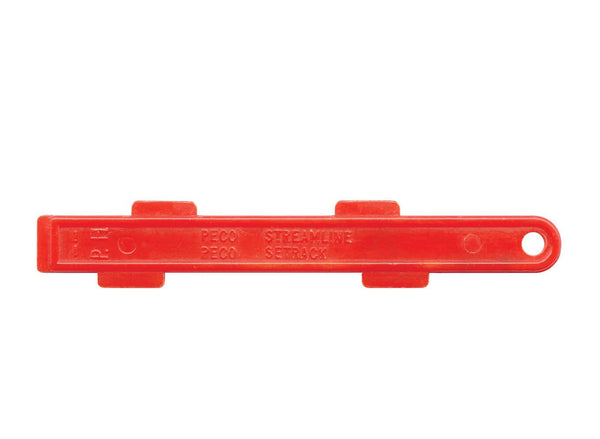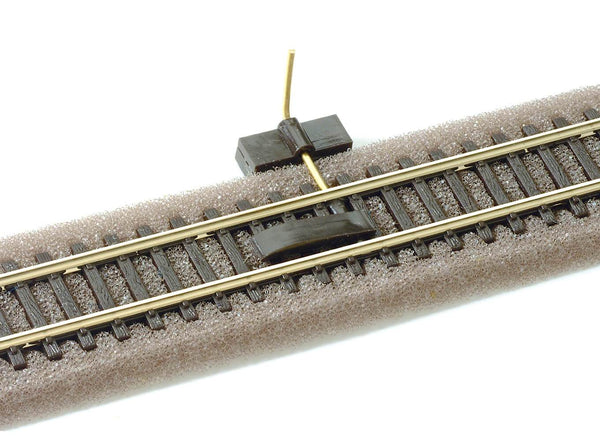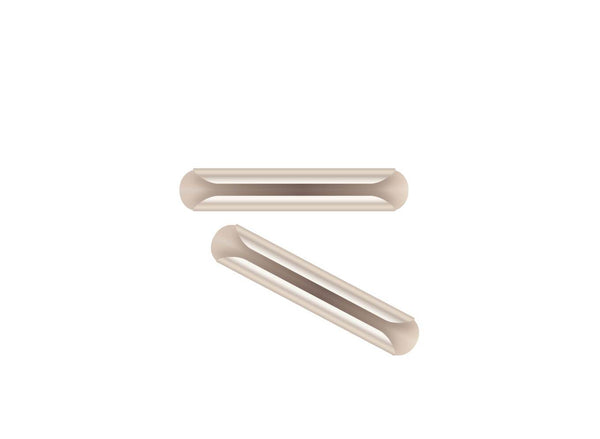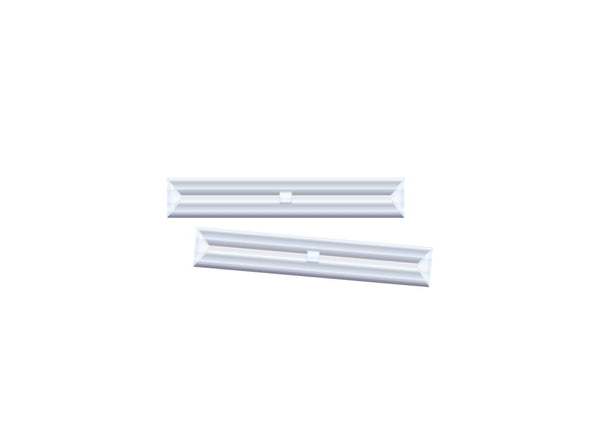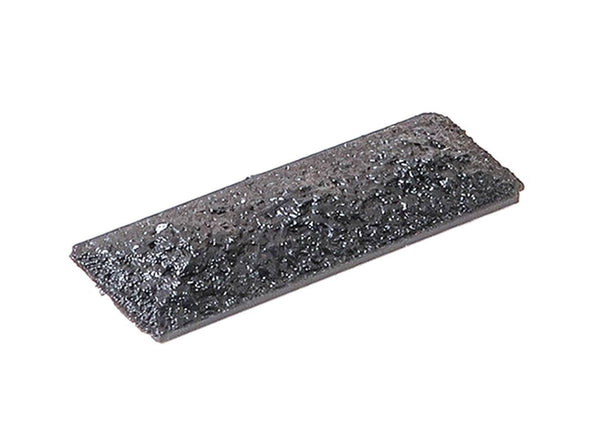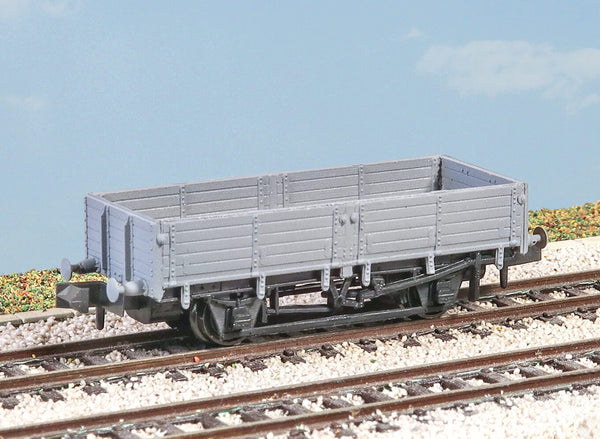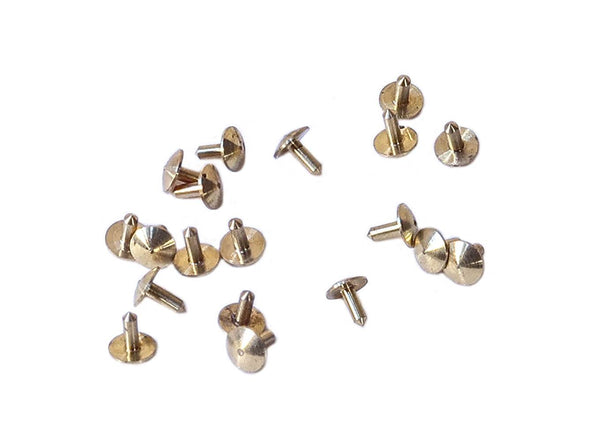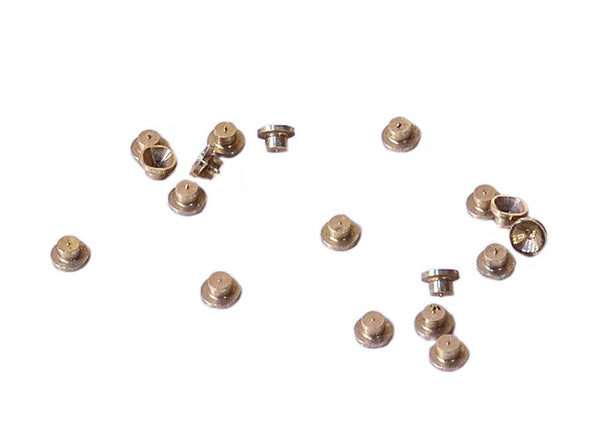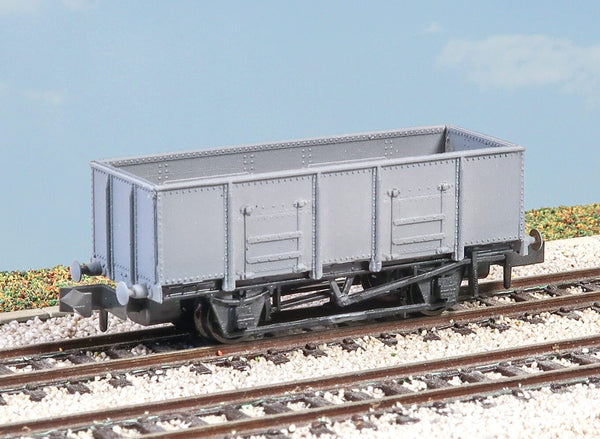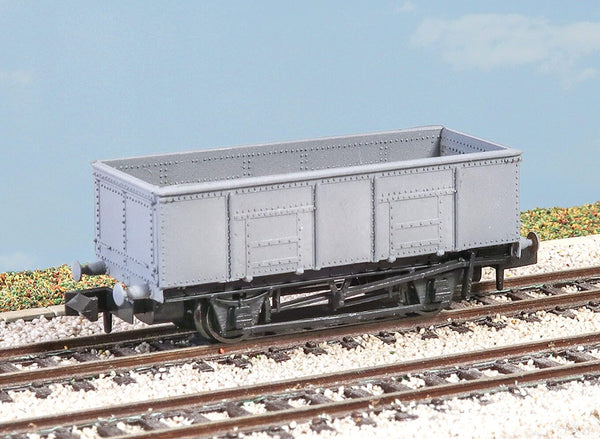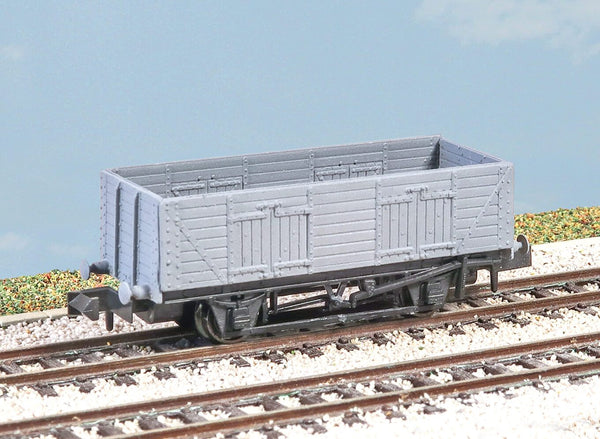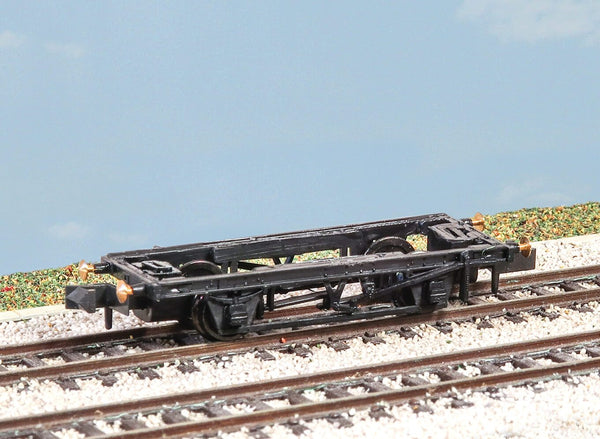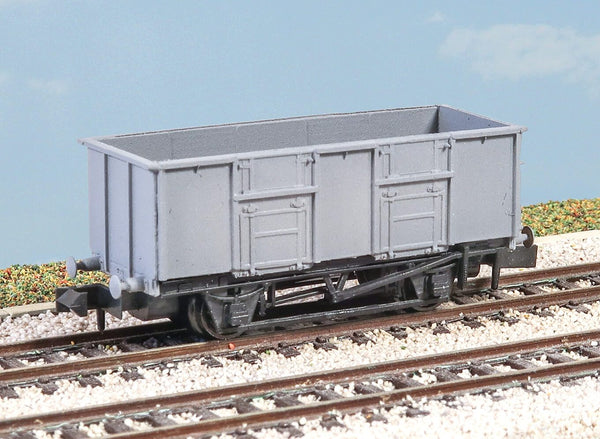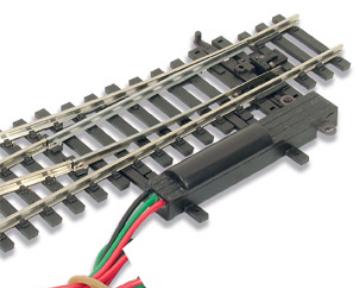BROWSE PECO PRODUCTS
Browse through our complete product portfolio.
482 Products Found
Standard Curve, 2nd Radius
PECO Setrack N Gauge Code 80 - Unit trackage System
The high quality rigid unit trackage system suitable for all popular brands of N gauge model trains.
Being fully compatible with both Code 80 and Code 55 PECO Streamline, it need never be discarded as your layout develops.
The solid nickel silver rails are integrally moulded into the sleeper bases for maximum realism and strength. Turnouts are fitted with an over-centre spring for immediate use, no extra levers necessary.
Double Curve, 1st Radius
PECO Setrack N Gauge Code 80 - Unit trackage System
The high quality rigid unit trackage system suitable for all popular brands of N gauge model trains.
Being fully compatible with both Code 80 and Code 55 PECO Streamline, it need never be discarded as your layout develops.
The solid nickel silver rails are integrally moulded into the sleeper bases for maximum realism and strength. Turnouts are fitted with an over-centre spring for immediate use, no extra levers necessary.
Double Straight
PECO Setrack N Gauge Code 80 - Unit trackage System
The high quality rigid unit trackage system suitable for all popular brands of N gauge model trains.
Being fully compatible with both Code 80 and Code 55 PECO Streamline, it need never be discarded as your layout develops.
The solid nickel silver rails are integrally moulded into the sleeper bases for maximum realism and strength. Turnouts are fitted with an over-centre spring for immediate use, no extra levers necessary.
Standard Straight, Wired
A Standard Straight with soldered power feeds. PECO Setrack N Gauge Code 80 - Unit trackage System
The high quality rigid unit trackage system suitable for all popular brands of N gauge model trains.
Being fully compatible with both Code 80 and Code 55 PECO Streamline, it need never be discarded as your layout develops.
The solid nickel silver rails are integrally moulded into the sleeper bases for maximum realism and strength. Turnouts are fitted with an over-centre spring for immediate use, no extra levers necessary. This is a Standard Straight Unit which has been pre wired to allow power to be easily delivered to the track with power feeds ready soldered to the rails - easily extended using PL-39 Terminal Blocks and PL-38 Red and Black Wire.
Standard Straight
PECO Setrack N Gauge Code 80 - Unit trackage System
The high quality rigid unit trackage system suitable for all popular brands of N gauge model trains.
Being fully compatible with both Code 80 and Code 55 PECO Streamline, it need never be discarded as your layout develops.
The solid nickel silver rails are integrally moulded into the sleeper bases for maximum realism and strength. Turnouts are fitted with an over-centre spring for immediate use, no extra levers necessary.
Ballast Inlay, Medium Radius, Left Hand
Moulded foam ballast inlay in a realistic brown colour. Moulded units fit Turnouts and Crossings, and rolls are available for plain track (Streamline and Setrack). This inlay system adds extra realism as well as giving quieter, smoother running. Suitable for Code 80 and Code 55 track.
AWS Ramp
Detailed moulding of the ramp/protective cover for the Automatic Warning System used on British railway routes. This dummy unit will add realism to your trackwork.
Buffer Stops
Detailed model of the standard British Railways type. Three plastic moulded parts which, after assembly, clip onto the rails (2 per pack).
Re-Railer
Makes re-railing steam locos and bogie vehicles simple - less handling too.
Also suitable for re-railing 009/H0e locomotives and stock.
6' Way Gauge
A small but useful item to ensure the accurate spacing of double tracks in N along both straight and curved sections. Also gauges platform height to the recommended 7mm (3ft 6ins in 2mm scale).
Decoupler Manual
Uncouplers - Manual type,for Elsie couplings and other similar types (2 per pack).
Conducting Rail Joiners
Conducting Rail Joiners - Nickel silver for both Code 55 and Code 80 track
Insulated Rail Joiners
Insulated Rail Joiners - Plastic for both Code 55 and Code 80 track. Design prevents adjacent rails from touching whilst holding them in alignment.
Insulated rail joiners are required to provide electrical breaks where Electrofrog turnouts are used, for more details see our Wiring the Layout publications Nos 4 and 21.
Coal Loads for Bachmann (TM) Hopper Wagons
Pack of 10, suitable for 1/160 scale MGR Hopper wagons.
SR 20ton Sleeper Wagon
Introduced in 1928 (diagram 1771), and still in service carrying a wide variety of Civil Engineer’s materials on BR Southern Region. These finely moulded plastic wagon kits come complete with pin point axle wheels. Glue and paint will be required, along with appropriate transfers .
BR Pipe Wagon
Introduced in 1949 (diagram 1/462), and intended to carry cast iron pipes, but were also used widely for other loads. Examples survived into the 1980s. These finely moulded plastic wagon kits come complete with pin point axle wheels. Glue and paint will be required, along with appropriate transfers .
LMS 20ton Loco Coal Wagon
From 1936, these wagons (diagram 1974) carried coal to the company’s loco depots. Used by for general coal traffic until the late 1960s. These finely moulded plastic wagon kits come complete with pin point axle wheels. Glue and paint will be required, along with appropriate transfers .
GWR 20ton Coal Wagon
Introduced in 1924, and part of GWR’s drive to use higher capacity wagons. Known as ‘Pole’ wagons (diagram N24) after the company’s General Manager. These finely moulded plastic wagon kits come complete with pin point axle wheels. Glue and paint will be required, along with appropriate transfers .
LNER 20ton Loco Coal Wagon
A standard 1930s design, they carried coal to the company’s loco depots. Used by BR for general coal traffic. Withdrawn around 1960. These finely moulded plastic wagon kits come complete with pin point axle wheels. Glue and paint will be required, along with appropriate transfers .
BR 12foot Wheelbase Chassis
Kit and scratch builder's accessory. These finely moulded plastic wagon kits come complete with pin point axle wheels. Glue and paint will be required, along with appropriate transfers .
BR 24ton Mineral Wagon
Over 2000 of these wagons were built to carry coal to large concerns such as power stations and steel works. Period 1953-1982. These finely moulded plastic wagon kits come complete with pin point axle wheels. Glue and paint will be required, along with appropriate transfers .
